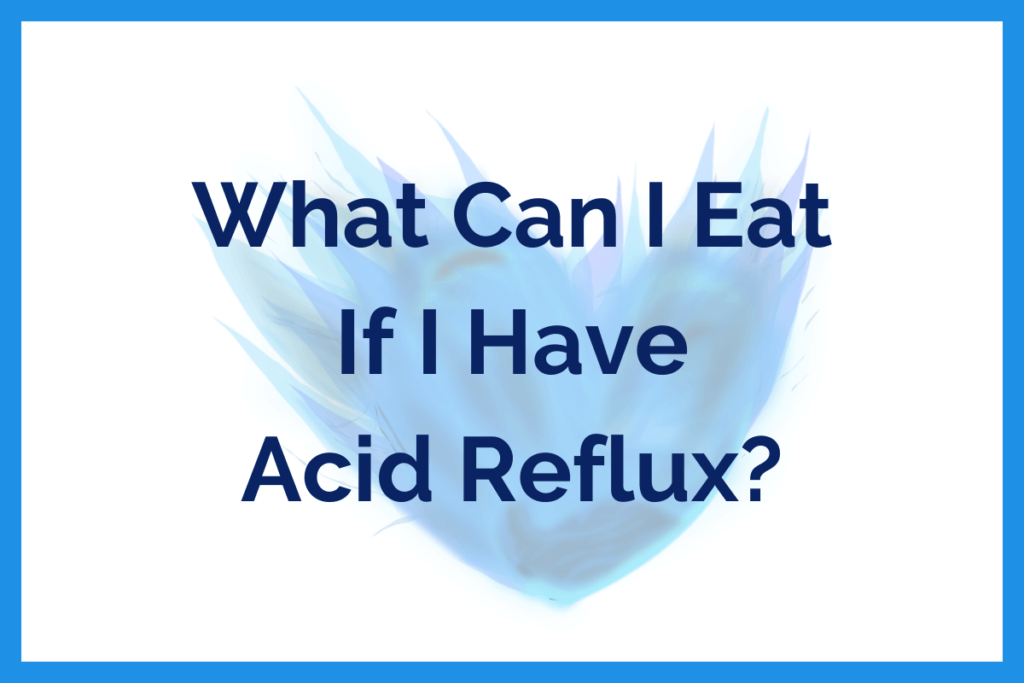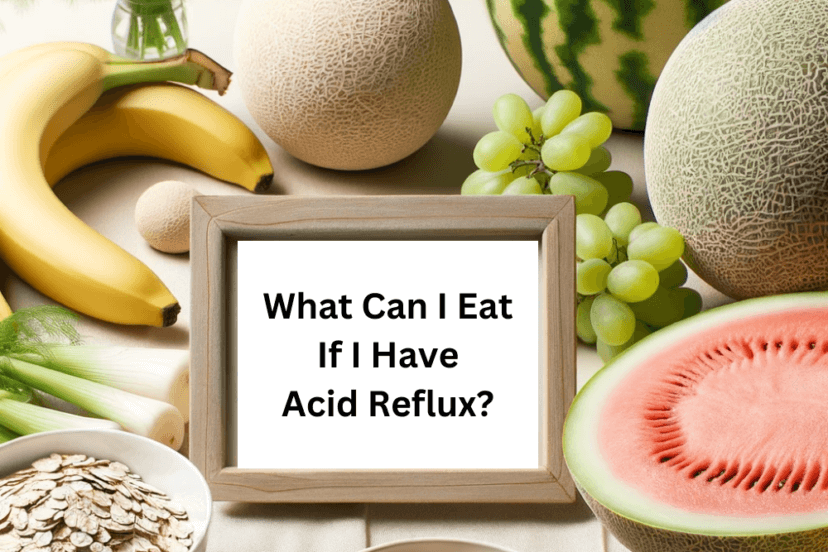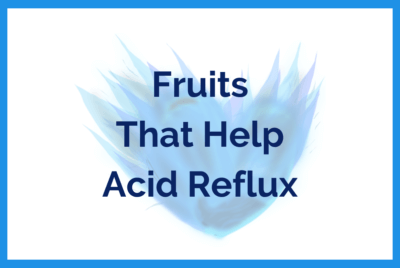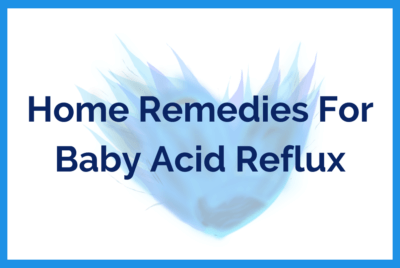What Can I Eat If I Have Acid Reflux?
Table of Contents
Introduction – What Can I Eat If I Have Acid Reflux
Acid reflux is a common condition that many people experience from time to time after eating. It occurs when stomach acid backs up into your esophagus, causing symptoms like heartburn, belching, and nausea. Although acid reflux can be triggered by different foods for different people, there are many nutritious foods that can help reduce symptoms. In this article, I’ll share foods that are usually well-tolerated as well as problematic foods to avoid if you have acid reflux.
What is acid reflux?
If you are thinking, “What Can I Eat If I Have Acid Reflux?”, it would help to know a little more about what acid reflux really is. . Acid reflux, also called gastroesophageal reflux disease (GERD), is a digestive disorder where stomach acid or bile flows back into the esophagus, irritating the lining. This backflow of acid causes burning pain known as heartburn, the most common symptom of acid reflux.
Common triggers
Acid reflux occurs when the muscle at the end of the esophagus, known as the lower esophageal sphincter, weakens or relaxes. This allows food and stomach acids to flow back up the esophagus. Common triggers include:
- Eating large, heavy meals
- Lying down too soon after eating
- Eating fried, spicy foods
- Drinking coffee, alcohol or carbonated beverages
- Being overweight or obese
- Smoking
Lifestyle changes
Making certain lifestyle changes can help prevent acid reflux symptoms. These include:
- Avoiding problem foods and drinks
- Eating smaller, more frequent meals
- Losing weight if needed
- Not smoking
- Limiting alcohol
- Avoiding tight clothing
Now let’s look at what foods can help control acid reflux symptoms.

Foods That Help Reduce Acid Reflux
Thankfully, many nutritious foods are usually well-tolerated and can help control acid reflux. Here are some of the best options:
Low-acid fruits
Fruits are an important part of a healthy diet, even if you have acid reflux. The best fruits to choose are those that are low in acid. Good options include:
- Bananas – Bananas are naturally low in acid. They help absorb excess stomach acid and coat the lining of the esophagus.
- Melons – Honeydew, cantaloupe and watermelon are hydrating and less acidic.
- Pineapples – Although slightly acidic, ripe pineapples contain bromelain, an enzyme that aids digestion.
- Apples – Apples are a good source of pectin, a soluble fiber that can help absorb excess stomach acid.
Non-citrus vegetables
Vegetables provide important vitamins and minerals and can play a beneficial role in an acid reflux diet:
- Potatoes – Baked or mashed potatoes are starchy, alkaline, and low in acid.
- Leafy greens – Greens like kale, spinach, and romaine lettuce are low in acid.
- Broccoli and cauliflower – These crunchy veggies can help reduce stomach acid.
- Celery – Celery is a low-acid food that can help absorb stomach acid.
- Sweet potatoes – Baked sweet potatoes are nourishing and easier to digest.
Lean proteins
Protein foods like poultry, fish, eggs and legumes are usually well-tolerated and important for acid reflux diets:
- Skinless chicken and turkey – Go for roasted, baked or grilled. Avoid fried.
- Lean cuts of beef – Choose filet mignon, sirloin or flank steak.
- Fish and seafood – Opt for low-fat choices like salmon, tilapia or shrimp.
- Eggs – Scrambled or poached eggs can provide protein without excess fat.
- Tofu – A plant-based protein source that is low in fat.
- Beans and lentils – These legumes are high in fiber and plant-based protein.
Healthy fats
Not all fats worsen reflux. In fact, some healthy fats can help improve digestion. Good options include:
- Avocados – Smooth and creamy, avocados contain heart-healthy fats.
- Olives – High in monounsaturated fat, olives may help neutralize acid.
- Nuts and seeds – In moderation, almonds, walnuts and flaxseeds provide fiber and nutrients.
- Nut oils – Opt for olive, avocado and nut oils when preparing foods.
Non-fat or low-fat dairy
Dairy is often a trigger, but some people can tolerate small amounts of low-fat or non-fat products:
- Low-fat milk – Can be okay in moderation for some people. Avoid whole milk.
- Low-fat yogurt – May help provide relief due to probiotics that support gut health.
- Low-fat cheese – Feta and mozzarella are lower in fat than hard cheeses.
Whole grains
Whole grains provide important nutrients and can be a part of an acid reflux diet:
- Oatmeal – A comforting breakfast option that is high in fiber. Avoid added fat.
- Brown rice – More easily digested than other grains. Best in small portions.
- Quinoa – Cooked quinoa can be used as a fiber-rich alternative to rice.
- Whole grain bread – Sourdough and whole wheat bread may be tolerated in moderation.
Herbal teas
Sipping on warm, caffeine-free herbal tea can be soothing and beneficial:
- Ginger tea – Ginger can help reduce inflammation associated with reflux.
- Fennel or chamomile tea – Known for aiding digestion and reducing gas.
- Licorice tea – Has demulcent properties that coat and soothe the esophagus.
- Peppermint tea – Pleasantly flavored but may relax the esophageal sphincter.
Now let’s go over foods that are best to limit or avoid if you have acid reflux.
Foods to Avoid with Acid Reflux
While many nutritious foods can ease acid reflux, others can trigger uncomfortable flare-ups. Here are seven foods known to aggravate acid reflux that are best avoided:
Spicy foods
Spicy foods like hot sauce, chili peppers and curry can irritate the esophageal lining and worsen acid reflux symptoms:
- Hot sauces – Tabasco, Buffalo and chili sauces can burn the esophagus.
- Chili peppers – Jalapeños, habaneros and cayenne pepper may cause heartburn.
- Black pepper – Can provide heat and aggravate acid reflux.
- Curry dishes – Often contain spices like chili powder and cayenne.
Fatty foods
High-fat foods take longer to digest, increasing pressure in the stomach and worsening reflux:
- Fried foods – French fries, fried chicken and onion rings sit heavy in the stomach.
- Fast food – Burgers, pizza, tacos and other fast foods are high in saturated fat.
- Full-fat dairy – Whole milk, cream, butter and full-fat cheese are reflux triggers.
- Fatty cuts of meat – Opt for leaner varieties over prime rib and bacon.
Citrus fruits
Despite providing vitamin C, most citrus fruits are too acidic for acid reflux diets:
- Oranges – The high acid content in oranges and orange juice can aggravate reflux.
- Grapefruits – Large servings of grapefruit or juice may cause burning.
- Lemons and limes – These sour fruits are best avoided, although small amounts may be okay.
Tomatoes
Whether fresh, canned or cooked into sauces, tomatoes are acidic and can provoke heartburn:
- Raw tomatoes – Sliced tomatoes in salads can increase stomach acid production.
- Tomato sauce – Spaghetti sauce, chili and soups with tomatoes may cause flare-ups.
- Salsa – The tomatoes and spices in salsa can be problematic for reflux.
Alcohol
All types of alcohol can worsen acid reflux by relaxing the lower esophageal sphincter:
- Wine – Red and white wine contain acidic tannins that can burn the throat.
- Beer – Carbonated beers promote burping and bloating.
- Liquor – Whiskey, rum and other hard alcohols also irritate the esophagus.
- Cocktails – Mixed drinks often combine alcohol with acidic juices.
Coffee and caffeinated beverages
Coffee, tea, soda and energy drinks can lead to overproduction of stomach acid:
- Coffee – Caffeine in coffee relaxes the esophageal sphincter, allowing reflux.
- Black tea – The caffeine in unsweetened tea can also cause acid reflux.
- Sodas – The carbonation and acidity in colas, sparkling water and other sodas worsen symptoms.
Chocolate
The cocoa, sugar and fat content in chocolate can cause problems for acid reflux sufferers:
- Dark chocolate – Contains caffeine and cocoa, which bother lower esophageal sphincter.
- Milk chocolate – High in saturated fat, which is slower to digest.
- Chocolate syrup – Adds sweetness and thickness to drinks, which can increase reflux.
Peppermint
Peppermint may relax the lower esophageal sphincter muscle, allowing stomach contents to flow up into the esophagus:
- Peppermint candy – Canisters contain pure peppermint oil, which relaxes the sphincter.
- Peppermint schnapps – This potent alcohol contains peppermint flavoring.
- Peppermint tea – May be soothing but can worsen reflux in some people.
Tips for Preventing Acid Reflux
Making certain diet and lifestyle changes can go a long way towards preventing acid reflux flare-ups. Here are some helpful tips:
Eat smaller meals
Don’t overload your stomach. Eat smaller portions and have snacks between meals if needed.
Don’t lie down after eating
Allow gravity to keep food down in your stomach by staying upright after meals.
Lose weight if needed
Excess weight puts pressure on the stomach and can worsen acid reflux.
Quit smoking
Smoking weakens the lower esophageal sphincter and provokes acid reflux.
Limit alcohol
Reduce or eliminate alcohol, as it relaxes the esophageal sphincter.
Conclusion
If you have acid reflux, you don’t have to give up all of your favorite foods. By choosing low-acid fruits, vegetables, lean proteins and other gut-friendly foods, you can control symptoms while still enjoying nutritious and delicious meals. Avoid problematic foods like fatty fare, spicy dishes and alcohol. With lifestyle changes and proper treatment, most people find they can manage their acid reflux and diet.
A systematic review on Dietary Intake in Relation to the Risk of Reflux Disease discusses the impact of food and dietary patterns on GERD, where 25 studies were included covering case-control studies, cross-sectional studies, and prospective studies:
FAQs
What foods neutralize stomach acid?
Foods that help neutralize stomach acid include green leafy vegetables, melon, banana, almond milk and oatmeal. Chewing gum can also promote saliva production, which helps neutralize acid.
What foods cause the worst acid reflux?
Onions, chocolate, mint, spicy foods, citrus fruits, coffee and tomato products tend to be the biggest acid reflux triggers.
What foods can I eat if I have severe acid reflux?
For severe reflux, stick to low-acid bland foods like bananas, oatmeal, boiled potatoes, rice, cooked carrots, yogurt and lean protein like chicken or fish. Avoid trigger foods.
What is the best thing to drink for acid reflux?
Water, herbal tea, almond milk and low-fat milk are gentle, soothing drinks for acid reflux. Avoid coffee, soda, alcohol and citrus juices.
What foods help reduce acid reflux symptoms?
Some foods that can help control acid reflux include melon, leafy greens, ginger tea, fennel tea, whole grains, plant-based proteins and healthy fats like olive oil and avocado.




